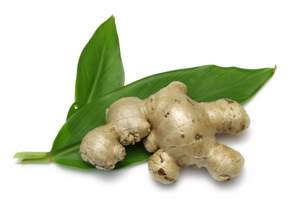|
How to Improve DigestionTips for better food digestion

Find out how to improve digestion quickly and effectively through healthier eating habits. The efficiency of the human digestion process can be strongly influenced by the way you eat your food. Chew your foodThis is often the most important step in improving food digestion. Chewing (or masticating) breaks your food up so that it’s easier to digest, stimulates the flow of saliva in your mouth and mixes your food well with saliva. Chewing well pre-digests your food before sending it to your stomach. The chewing action signals your stomach to begin secretion of gastric juices in preparation for digesting food. Chewing your food also gives your taste buds a chance to work and your brain to signal when your body’s had enough. Fortunately it’s within your power to chew your food well! Don’t drink with mealsDrinking water dilutes your digestive juices, so drink no closer than 30 minutes before your meal and don’t drink for at least an hour afterwards. This includes soup, so if serving soup as a starter allow 30 minutes between finishing soup and the main course. Drink pure water regularly between meals. Don’t eat just before bedLet your stomach rest with the rest of your body. Finish eating at least 3 hours before you go to bed. Avoid very hot or very cold foodsVery cold or hot foods and fluids delay digestion and weaken the digestive organs. Avoid hot drinks for at least an hour after you’ve finished eating. Don’t over-eatOver–eating is a major cause of disease in the developed world. Don’t overfill your stomach and give yourself a chance to feel hungry again before you re-fill your stomach. Overeating is more likely when you eat in a hurry or eat excessively seasoned food. Keep meals simple as too much variety can also encourage over-eating. Don’t exercise heavily after eatingRest after a heavy meal, don’t be overactive. Being heavily active will divert energy from the digestive process. A gentle stroll after a short rest can aid digestion.
Try gingerGinger
is reputed to aid the digestive process by stimulating the gastric juices. Eat ginger with or following meals, or try
ginger tea.
Herbal remedies are also available such as DigestAssist from Native Remedies (aff.). This remedy for acute and chronic digestive problems contains ginger and fennel, peppermint and stomach bush (a native remedy from the indigenous people of South Africa.) Reduce alcohol, tea and coffeeDrink herbal teas rather than stimulants. Toxins from tea and coffee accumulate and weaken your digestive strength. Drinking large amounts of hot drinks is a common source of digestion problems as it dilutes gastric juices and weakens your digestive power. Don’t eat in a hurryWhen you rush your meals you don’t have time to chew your food properly. Hurrying through your food also leads to overeating. Eat when you’re relaxedTry not to eat when you’re stressed or very tired. Your body needs to have some energy to put into the digestive process. Eat in a relaxed and peaceful environment. Give your stomach a restWait for your stomach to digest the contents from your previous meal before you eat again (about 4-5 hours). This allows your stomach to rest and to replenish its digestive juices and enzymes. Trust your taste budsWholefoods have a delicious natural flavour. Develop your taste buds sensitivity to flavours instead of over-riding them with unnecessary seasonings such as salt, mustard and spices. Consider salt substitutes such as dulse flakes or organic vegetable salt. Food combiningConsider investigating how to improve digestion through food combining. Food combining is an eating system based on the idea that different foods require different lengths of time to digest, and involve different stomach enzymes in the digestive process. Eat foods that digest well together. Food combining systems detail foods that are complementary for your digestive system. Improve your posturePoor posture can restrict blood flow and cramp your digestive process. Maintain good posture and don’t lie down after eating. Yoga can help you improve your posture and there are even specific poses used in yoga that can balance your digestive system. Eat enough high-fibre foodsThe body needs enough fibre to process waste through the digestive system. Give your stomach time to digest meatMeat is slow to digest so space your stomach after consuming meat. A vegetarian diet is generally more easily digested, so consider eating more vegetarian meals. Cut out sugarSugar interferes with the pre-digestive action of saliva, which makes the digestion of starchy foods in particular more difficult. Starchy foods are then more likely to ferment in the stomach as they’ve not been pre-digested by saliva. Cut down on pepperPepper can be an irritant to the digestive system. See your doctor if you have persistent food digestion problems or need more information on how to improve digestion. Articles Related to How to Improve Digestion
Back to Food Digestion Tips from How to Improve Digestion
Back to Healthy Eating Guide home from How to Improve Digestion
|
Are you as healthy as you can be?
Take action to lift your energy and vitality levels beyond recognition.
Focus on
building healthy eating habits for just one month with
Veg Up and you’ll enjoy the effects for years. You will amaze yourself when you see how much more you can achieve.
More Growing Raw
Newsletter
Be sure to subscribe to "More Growing Raw" newsletter to receive monthly healthy eating tips, Growing Raw news and updates.
Most Popular Articles
- Green Smoothie Health
- Raw Food Health Levels
- Growing Vegetables in Containers
- Healthy Eating Plans
- List of Healthy Food to Always Eat Organic
- Growing a Vegetable Garden in a Polytunnel
- All Natural Detox Diet
Does your body need a fresh start?
Brighten up with all natural detox routines that give your body a cleansing push towards healthier patterns.
Learn how to
detoxify your body naturally. Your body is smart enough to clean itself without expensive detox pills and potions.









